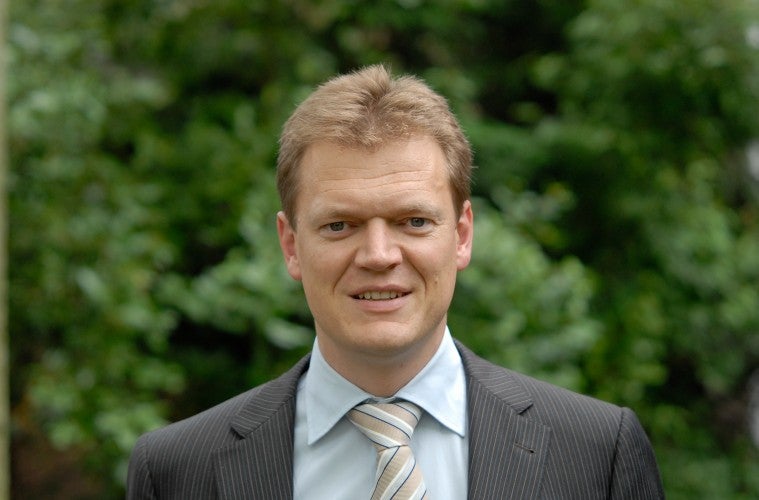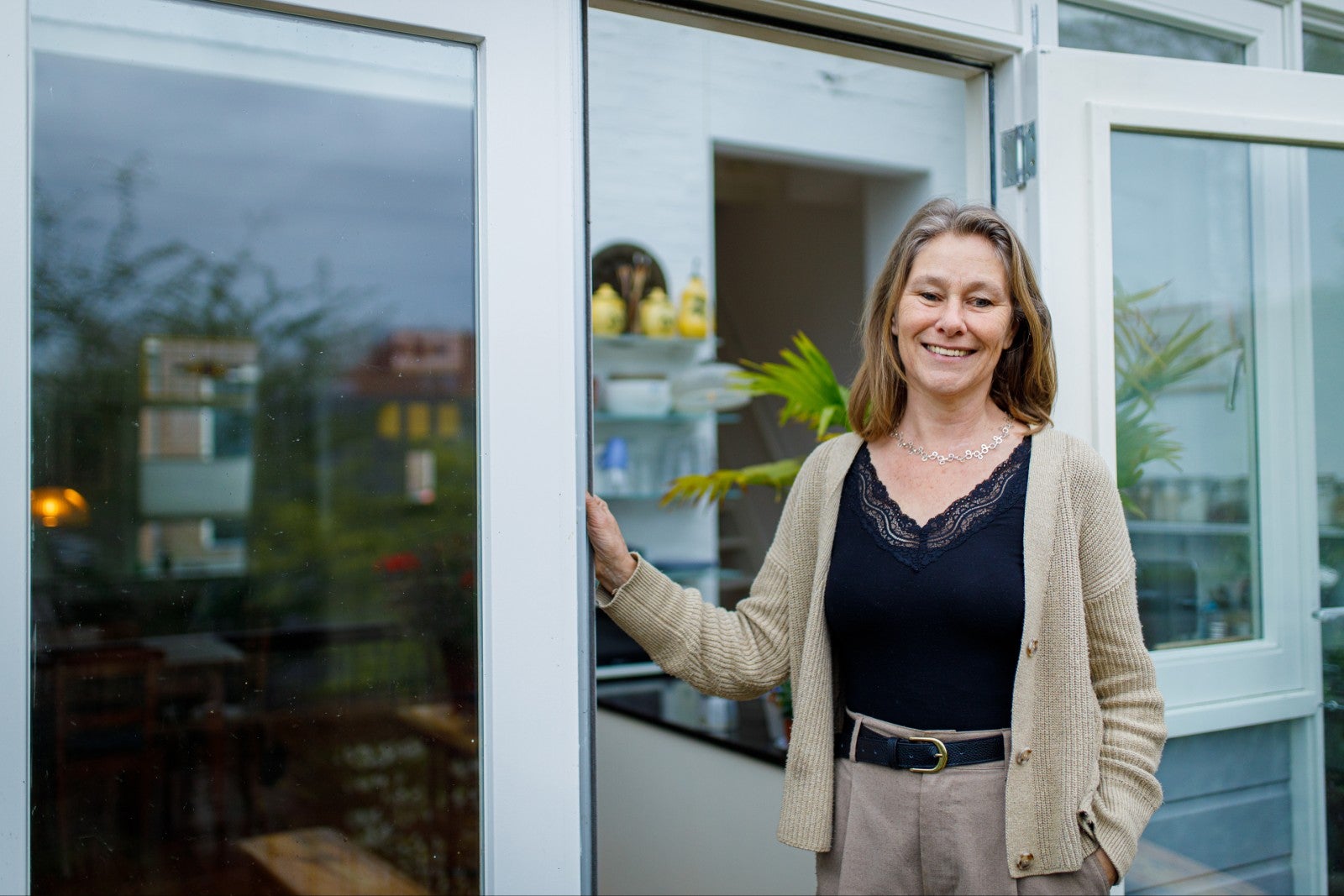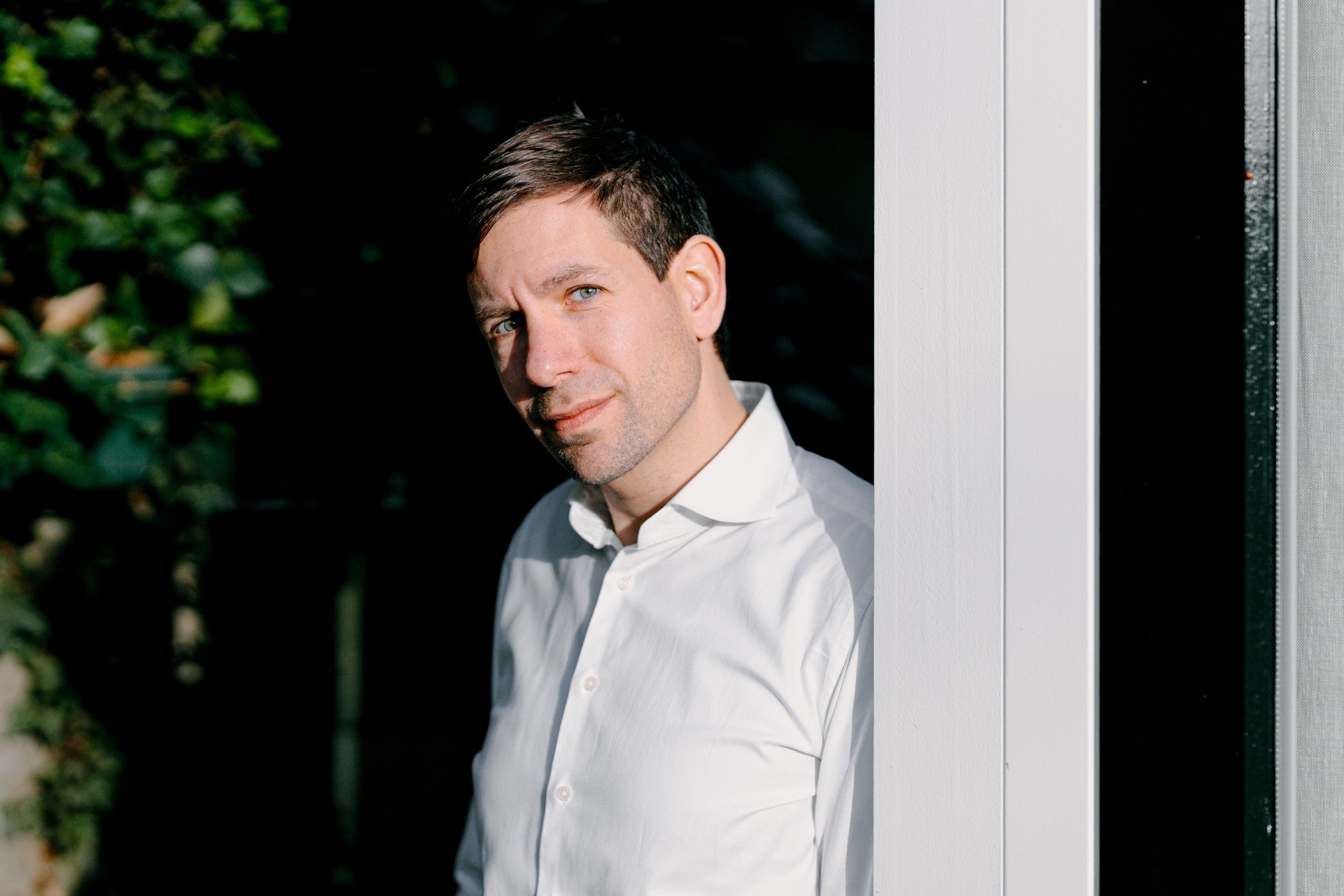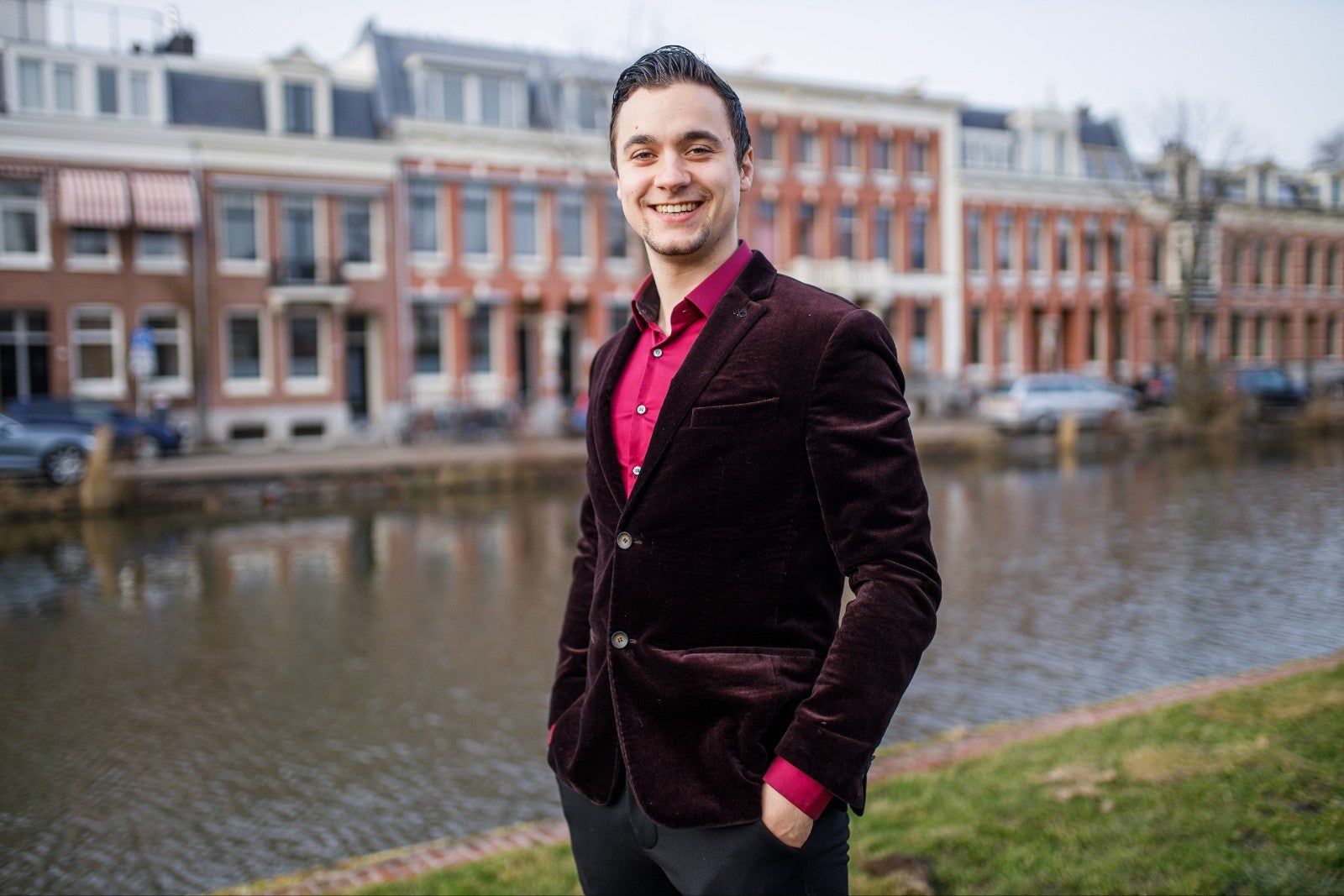Rob van Oostveen (1971) studied Chemistry, but made his lightning career in the financial world. The banker was recognised by Management Team as a ‘goudhaantje’: people under 40 with a big future in business.
A chemist who became a banker? “Yes. With my interests, it was a logical step, but it was 180 degrees from the start of my career. During my Chemistry studies, I discovered my interest in investing. ‘I worked in a restaurant, and I started an investment club with my colleagues. I chose Chemistry because it was a fun class and I was good in it, but I was also very interested in business.
I hoped to be able to combine the two, so I took courses from other faculties during my studies: Introduction to Marketing at Economics and Policy and Management at the Faculty of Science. I presented my Master’s thesis to DSM, and after my studies I went to work at Procter & Gamble in a position between research and marketing. We tested our laundry detergents to support our advertising claims, studied the more serious complaints and tested our competitors’ products. But every day, I started reading the newspaper at the financial page. After two years, I gathered up all my courage and applied for a job as a management trainee at ABN Amro.”
And you’ve been working in the banking world ever since? “Yes, but I’ve continued taking some radical steps in the banking world. At ABN Amro, I discovered leadership. I was asked to take over as the department head for a back-office department, and I experienced how great it is that you can make a real difference in an organisation as a manager. But I missed the financial work, so I became an investment analyst. That was the most fun work with respect to content I’ve done so far, but I had problems with the fact that I couldn’t change my surroundings. For me, a job has to combine work with finance and leadership. In the years that followed, I became an operational director for the investment teams at ABN Amro Asset Management, and after the acquisition by Fortis I integrated all of the global investment activities. I was faced with another pure management position, with little financial content. When I had a chance to lead the investment branch at Van Lanschot in 2008, I went back to the financial side of the work.”
‘I worked in a restaurant, and I started an investment club with my colleagues’
Did you constantly have to re-train to switch to the new positions? “I never re-trained, I just always kept learning. I had already worked in management at ABN Amro when I earned my MBA. When I was an investment analyst, I attended the CFA, an advanced investment study programme. I’ve never done a study programme because it was necessary to perform another job, but rather to meet a need for knowledge. You could probably call it ‘pre-training’ rather than ‘job training’, because I took courses that might have a benefit over the long term. Not just focused on a single position, but to improve my general employability. That’s something I believe in. You don’t study Chemistry because you know exactly what you want to do later on; my classmates and I ended up going in all sorts of different directions.”
So you probably would have ended up here, no matter what you studied? “Yes. I’m just intensely interested in finance. The book Talent Is Overrated by Geoff Colvin really inspired me. In it, he shows that hard work and drive are more important for your career than talent. It’s about putting in the hours: if you devote enough time and passion to something, then you’ll become really good at it. Mozart wasn’t simply gifted: his father sat him down at the piano when he was a small child, and that’s what made him good.
I don’t believe managers who come to a company and say: ‘I’ll keep the good people and kick the rest out’. People can always perform if they want to. It’s your job as a manger to keep them working in the same direction. You have to make them good at their jobs by giving them the chance to do their work with passion and enjoyment.”
‘Hard work and drive are more important for your career than talent’
You’ve just returned from Belgium, where you organised and managed the subsidiary of Van Lanschot Bankers. Is this another financial position? “In Belgium, I had my own ‘private bank’, which we ran with around 140 people. There I was responsible for the entire banking business: investing, savings and issuing credit.
My new position is once again mainly financial. I’m going to lead a new corporate bank for Van Lanschot Nederland – a bank that only serves businesses. The balance- and capital management makes it an interesting position. I’m really looking forward to it. My work has to have that financial component, although it doesn’t necessarily have to be in the banking world. I could just as easily be the financial director for a company.”
Have you benefited from your Chemistry studies? “I still use the things I learned there, like thinking logically and analytically and solving problems. And working hard. We were often jealous of the other students, who had maybe 14 hours of classes per week. We were in the lab from 9 to 5, and we often came home stinking of chemicals. We got used to putting in the hours.”
CV BLOK






